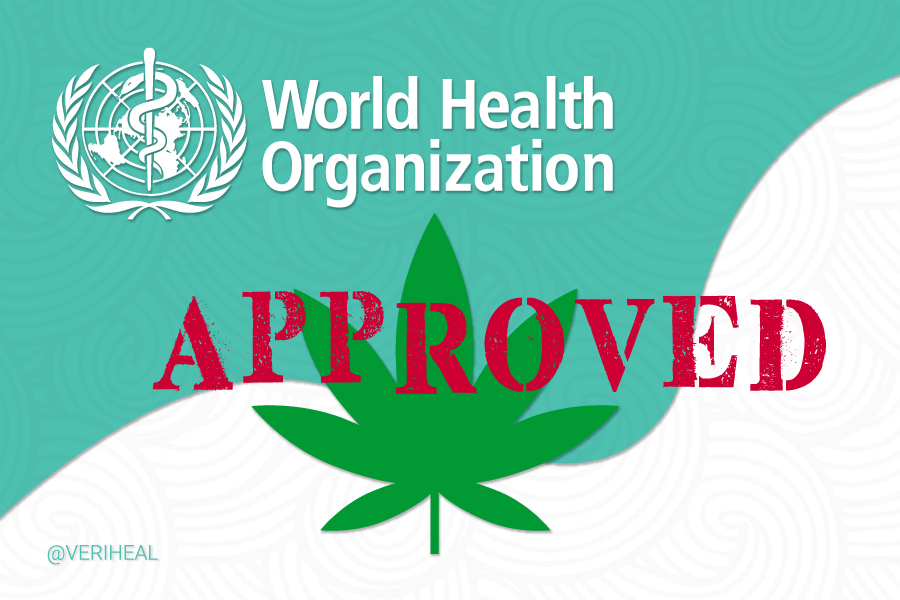Source: medicalcannabisbrief.com

As cannabis reform continues to go global, we are seeing more organizations and reputable statements come out. Now with more than 7000 people working in 150 country offices, the World Health Organization’s (WHO) primary role is to direct and coordinate international health within the United Nations system. They support countries as they coordinate the efforts of governments and partners.
Over the years the WHO has released several statements regarding the use of cannabis. The oldest available scientific report on the WHO website regarding cannabis is from 1971 and even 50 years ago and even then the organization gave clear recommendations of follow up research studies on uses, consumption methods, and effects on human behavior.
WHO Reviews and Changes Cannabis Recommendations
As a follow up to a scientific expert meeting held in 2015 that resulted in the WHO publication, “The health and social effects of nonmedical cannabis use” – WHO hosted a review of the latest available information in the public health of cannabis use and cannabis use disorders in December of 2019
This meeting was organized by the Department of Mental Health and Substance Use in collaboration with other relevant WHO programs. Their intention was updating and revising the above-mentioned publication to reflect the recent developments and accumulated evidence on appropriate public health responses to health risks associated with cannabis use. At the 2019 meeting, experts made a handful of recommendations regarding the scheduling of cannabis (and its resins, preparations, derivatives, etc) in global drug control treaties.
This Would Be The First Reschedule of Cannabis Since 1961
WHO recommendations are often celebrated as a positive step toward the easing of the international control of cannabis. Member states of the United Nations Commission on Narcotic Drugs (CND) received the cannabis recommendations in January 2020 and an expected vote to adopt the changes is scheduled for December 2020.
If adopted, this would be the first rescheduling of cannabis since the drafting of the 1961 Single Convention on Narcotics Drugs, a global drug control treaty, so it’s unsurprising that some governments are asking for more time before casting a vote that could catalyze the global cannabis industry.
Other organizations and governmental departments are now beginning to chime in on how, if at all, these recommendations (if adopted) would affect the international control on cannabis both medically and recreationally.
Particularly one recommendation is a big symbolic win because it would implicitly acknowledge the medical value of cannabis at the highest international level. Regarding practical implications in the level of international control, the Vienna-based International Narcotics Control Board (INCB) document found that, if adopted:
- Two recommendations would imply no meaningful change.
- Two others would mean more control for pure THC.
- The other two would imply less control – for certain pharmaceutical preparations containing THC and for some CBD products. But the INCB also said clearer definitions are needed.
Recommendations Are Just That
The 2015 recommendations report specifically states, “…[The expert panel] hope[s] that Member States, institutions, and organizations will be able to make use of this report when prioritizing areas for future international research on the health and social consequences of nonmedical cannabis use.”
While the changes that are being proposed are a sign of progress, they will not have a direct effect on international controls of cannabis. They will however serve as yet another win for the cannabis plant.
MEDICAL PLUGS BEST PLACE TO BUY MARIJUANA ONLINE
ReplyDeletemedical plugs
purple kush
moonrocks
gelato